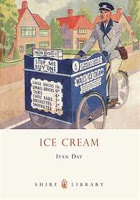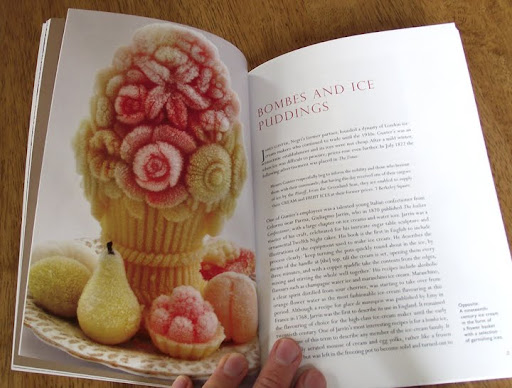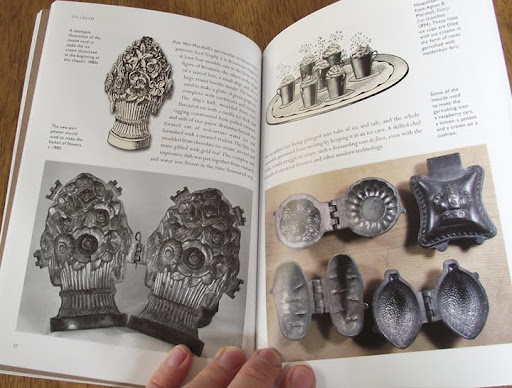 You might think that a review of Ice Cream by Ivan Day is an inappropriate choice for this blog, considering we don’t eat cow’s milk. However, much of the book is devoted to the history of dairy-free flavored ices. And although we might not eat it now, nearly all of us grew up with ice cream.
You might think that a review of Ice Cream by Ivan Day is an inappropriate choice for this blog, considering we don’t eat cow’s milk. However, much of the book is devoted to the history of dairy-free flavored ices. And although we might not eat it now, nearly all of us grew up with ice cream.
This new book by Shire Publications tells the story of frozen treats in Britain. At 64 pages with numerous color photos Ice Cream briskly explains production, extraordinary early flavors, vendor carts & trucks, advertising, and the changing ways in which these treats were enjoyed in British society. Introduced in the 17th century iced treats were a preserve of the wealthy. For hundreds of years ices and ice cream were the exclusive craft of personal chefs. In the 19th century small family businesses made them available to ordinary people, and by the 20th century large corporations controlled the market.
One of the most fascinating aspects of flavored ice treat history is their presentation. Stately banquets of the 19th century featured elaborate edible ice centerpieces in the form of fruits, flowers, even trompe l’oiel meat shapes. They were formed in elaborate pewter molds. The ice itself was imported from Norway and far away North America, and stored in underground pits! Many of the original molds have survived to this day, which were used to recreate several ice centerpieces shown in this book.


The book’s conclusion touches on a modern day return to high-quality ice creams, but I was disappointed that no mention was made of popular non-cow-dairy varieties. Today American health food stores are full of ice creams made from goat milk, hemp milk, and coconut milk. Maybe these are uncommon in the UK, but for a short time this year Brits had an even more extraordinary alternative. Human milk ice cream was sold in a Covent Garden restaurant from February until March when the authorities halted its sale for safety tests.
Zoe and Ashley love their mom’s ice cream, and they got a real kick from hearing about how people used to make and eat it.


Valerie Mantz says
A facebook friend led the way to your website and I am amazed and overwhelmed with the wealth of creativity and knowledge. It will take a while to go through it all!!!!
Thank you for sharing all that you have here.
Helen says
Isn’t history fascinating! Thanks for this interesting info.